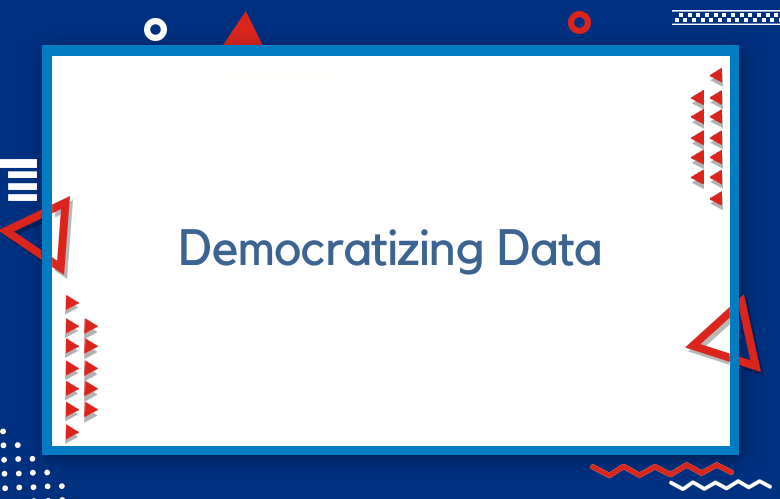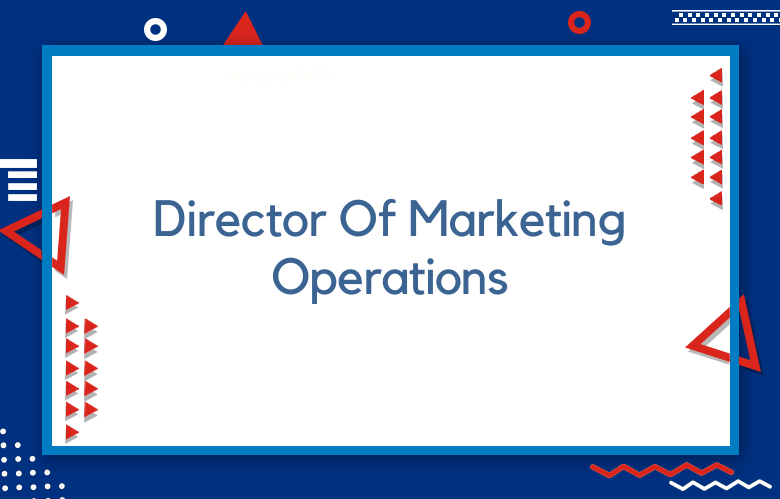Democratizing Data: The Power of Data Mesh for Marketing

The world of marketing has undergone unprecedented changes in the last few decades. From offline to online, marketing has evolved tremendously. And with each passing day, the amount of data marketers have to deal with is increasing.
Marketers must have a data-driven approach, but accessing, processing, and utilizing data meaningfully is still a significant challenge. Enter data mesh – a decentralized approach to data management that democratizes data for the benefit of the entire organization.
Data mesh is an emerging architectural approach to data management that aims to simplify data discovery, access, and processing. A decentralized system creates a data infrastructure that is ubiquitous, easily accessible, and standardized for the entire organization.
In this approach, data is not siloed in specific departments but made available across the organization through data products designed for particular use cases. This democratizes data and ensures that everyone has access to data to make informed decisions.
Discover the Power of Data Mesh for Marketing
Data Mesh is a novel approach to data management that has been gaining popularity in the marketing industry. It is a decentralized and scalable architecture that seeks to empower every team in an organization to own and manage their data.
This contrasts with traditional centralized approaches, where a single team or department manages data.
One of the critical benefits of Data Mesh is that it enables marketing teams to work more efficiently and effectively. By giving teams control of their data, they can tailor it to their specific needs and use it to make real-time decisions about marketing campaigns, customer behavior, and more.
This level of autonomy also frees up data engineers to focus on building better data infrastructure rather than spending their time managing data for other teams.
Transforming Marketing Data with Data Mesh
Data management and analysis have become increasingly vital in decision-making as businesses grow and expand.
This is particularly true in marketing, where there is abundant data to collect and analyze from various sources such as sales, advertising campaigns, and customer engagement. However, managing and analyzing such vast amounts of data can be daunting.
This is where Data Mesh emerges as a revolutionary approach that transforms marketing data management and analysis. Data Mesh is a distributed architectural approach that decentralizes data ownership and control, enabling teams to take responsibility for their respective domains.
This approach also encourages cross-functional collaboration and helps reduce monolithic data silos, allowing for easy access, sharing, and data analyses.
How Data Mesh Empowers Marketers to Harness Data
As the role of data in marketing continues to grow, it has become increasingly essential for marketers to manage and utilize their data effectively.
Enter Data Mesh – a new approach to data management that empowers marketers to harness data with greater efficiency and effectiveness.
Data Mesh is a distributed architecture approach to data management that promotes decentralization of data ownership and control. It aims to democratize data access and eliminate organizational silos, enabling cross-functional teams to share real-time data and insights.
Marketers can benefit significantly from the Data Mesh approach. By empowering marketers to manage their data effectively, Data Mesh enables them to create more personalized, targeted campaigns based on accurate and relevant data. This, in turn, can improve overall customer experience and increase customer engagement.
Data Mesh: The Modern Solution for Marketers’ Data Challenges
Data Mesh: A New Way of Organizing Data
Data mesh is a modern approach to data management that enables organizations to store, process, and analyze their data efficiently and securely.
It allows marketers to easily access the data they need without worrying about the complexity of traditional data architectures. With data mesh, marketers can quickly identify patterns in their data and use them to make informed decisions about their campaigns.
Improved Data Security
Data mesh provides improved security for marketers’ data by allowing them to control who has access to it and how it is used. This reduces the risk of unauthorized access or misuse of sensitive customer information. Data mesh enables marketers to encrypt their data so only authorized personnel can view or modify it.
Increased Agility
Data mesh also helps marketers become more agile in decision-making by providing real-time insights into customer behavior and trends. With this information, marketers can quickly adapt their strategies based on changes in the market or customer preferences. This increased agility allows them to stay ahead of the competition and maximize their return on investment (ROI).
Lower Cost
Data mesh also helps reduce costs associated with managing large amounts of data by eliminating the need for expensive hardware and software solutions.
It eliminates the need for manual processes such as ETL (Extract Transform Load), which can be time-consuming and costly. By reducing these costs, organizations can invest more resources into other areas, such as marketing campaigns or product development initiatives.
Better Understanding of Customer Behavior
Data mesh enables marketers to better understand their customers’ behavior by providing insights into how they interact with different products or services over time.
This information can help marketers create more targeted campaigns tailored specifically for each customer segment, resulting in higher conversion rates and increased ROI from marketing efforts.
Improved Collaboration
Data mesh also facilitates collaboration among teams on analytics or marketing campaign projects. Its flexible architecture allows multiple users to access the data simultaneously from any device connected to the network.
This makes it easier for teams across departments, such as sales, marketing, product development, etc., to work together on projects without worrying about compatibility issues between different systems or applications each team member uses.
Enhanced User Experience
Data mesh improves user experience by making it easier for customers or prospects to interact with a company’s website or mobile app through personalized offers, recommendations, and other features.
By utilizing machine learning algorithms, companies can provide customers with a more tailored experience that encourages engagement and loyalty.
Real-Time Insights
Data mesh provides real-time insights into customer behavior, which enables marketers to quickly respond and adjust strategies based on changes in the market or customer preferences.
This gives companies an edge over competitors who may need access to this type of information and allows them greater control over how they target potential customers.
The Benefits of Data Mesh in Marketing Analytics
Improved Data Quality
Data mesh provides organizations with a more accurate and reliable data set. This is because data mesh uses distributed data sources, which offers a more comprehensive view of customer behavior and allows organizations to make better decisions based on this information.
Increased Agility
Data mesh also allows organizations to quickly respond to market changes by providing real-time insights into customer behavior. This enables them to quickly adjust their strategies and take advantage of new opportunities.
Enhanced Security
Data mesh also provides enhanced security for businesses’ data sets. By having multiple data sources, companies can ensure that their data is stored securely and not vulnerable to hacking or malicious attacks.
Improved Collaboration
With data mesh, teams can collaborate more effectively on projects by accessing the same data set from different locations. This eliminates the need for manual processes and increases efficiency within an organization.
Reduced Costs
Data mesh also helps reduce costs associated with marketing analytics by eliminating manual processes and reducing the time needed to analyze customer behavior patterns.
This helps businesses save money in the long run by cutting labor costs related to marketing analytics projects.
More Significant Insights into Customer Behavior
One significant benefit of using data mesh in marketing analytics is that it provides organizations with more meaningful insights into customer behavior patterns, allowing them to create more effective campaigns that target specific segments of customers more accurately than ever before.
Automated Analysis
Another benefit of using data mesh in marketing analytics is that it allows companies to automate much of their analysis process, freeing up time for employees who would otherwise be spending hours manually analyzing customer behavior patterns and trends to gain insight into how best to target customers with campaigns or promotions.
Better Decision-Making Capabilities
With all the insights gained through automated analysis enabled by data mesh, companies can make better decisions when making strategic moves and investments. By identifying trends early on, companies can adjust their strategies to maximize success.
Why Marketers Should Adopt Data Mesh Methodology
In today’s fast-paced business environment, data has become an essential resource for every organization’s success. Marketers, in particular, are increasingly relying on data-driven insights to make informed decisions and drive their marketing strategies.
However, to meet the demands of modern businesses, more than the traditional centralized approach to data management is needed. That’s where data mesh methodology comes in.
Data mesh is an innovative data management approach that emphasizes decentralization and the importance of autonomy. It organizes data, allowing different teams, departments, and organizational functions to access data domains.
Each domain is responsible for its data quality, governance, and usage, which promotes a culture of ownership and accountability.
Exploring the Impact of Data Mesh on Marketing Insights
As digital transformation continues to revolutionize the business landscape, enterprises are looking for innovative ways to harness the power of data to drive growth, increase customer engagement, and enhance operational efficiency.
In this vein, the concept of data mesh is emerging as a promising strategy for achieving these goals. Data mesh refers to a decentralized approach to data architecture, whereby data is treated as a product and is owned and managed by individual teams rather than centralized in a single, monolithic data warehouse.
One area where data mesh is proving to have a significant impact is marketing insights. With the proliferation of channels through which brands can reach and engage with customers, making sense of the vast amounts of data generated and extracting actionable insights has become more challenging.
Data mesh enables marketers to break down data silos and decentralize data ownership and management, allowing them to gain a more comprehensive understanding of customer behavior and preferences.
Leveraging Data Mesh for Improved Marketing Effectiveness
In the modern era of business, data is one of the most valuable resources an organization can possess. However, to truly leverage the potential of data, it is essential to adopt an effective data management strategy that enables efficient and meaningful data sharing across various teams and departments.
This is where the concept of Data Mesh comes into play. Data Mesh is a relatively new data management approach that allows businesses to break down data silos and gives teams greater autonomy in managing their data assets.
By adopting this approach, organizations can build agile and scalable data architectures that promote collaboration, streamline data access, and facilitate data-driven decision-making.
How Data Mesh Enhances Data Collaboration in Marketing
Data Mesh is a novel approach to data management that has been gaining traction in the marketing industry in recent years. This approach prioritizes the decentralization and democratization of data, promoting collaboration and agility across an organization.
Data Mesh is revolutionizing how companies approach data collaboration by breaking down data silos and enabling cross-functional teams to access and work with data more seamlessly.
One way Data Mesh enhances data collaboration in marketing is by enabling teams to work more transparently and with greater autonomy. Traditionally, marketing teams have been indebted to centralized data teams or IT departments that manage most of a company’s data.
This can be frustrating for marketers who need to work with data daily but lack the control or flexibility to manipulate it in the necessary ways. With Data Mesh, however, teams can access data directly, breaking down barriers and increasing transparency across the organization.
Data Mesh in Marketing: Strategies for Data Leaders
Establish a Data Culture
Data mesh is a data management approach that empowers teams and individuals to use data daily. To successfully implement this approach, it is essential to establish a data culture within the organization.
This involves creating an environment where data is seen as an asset, and its use is encouraged. It also involves clearly defining roles and responsibilities for data-related activities and providing training on using data effectively.
Leverage Existing Data Sources
Data mesh encourages organizations to leverage existing external data sources rather than collecting new data from scratch.
This helps reduce costs and time associated with collecting new datasets while allowing organizations to access more comprehensive datasets than they could create independently.
Examples of external sources of data include public datasets, third-party APIs, or services such as Google Analytics or Amazon Web Services (AWS).
Create Data Governance Policies
Data governance policies are essential for ensuring the organization’s data is secure, accurate, and accessible only by authorized personnel.
These policies should specify who has access to what type of data, how it can be used, and how long it must be retained for compliance purposes.
These policies should outline best practices for storing and protecting sensitive information such as customer or employee records.
Develop Data Sharing Agreements
Organizations should develop clear agreements with any third parties they work with regarding the sharing of customer or other sensitive information.
These agreements should specify the types of information that can be shared, how it will be used, who has access to it, and how long it must be retained for compliance purposes.
Organizations should ensure that any third-party providers they work with have appropriate security measures to protect their customers’ information from unauthorized access or misuse.
Automate Data Processing
Data mesh encourages organizations to automate as much data processing as possible to reduce manual effort and improve efficiency.
Automation can take many forms, including using scripts or software tools such as Apache Spark or Hadoop for large-scale batch processing tasks, leveraging machine learning algorithms for predictive analytics, or using natural language processing techniques such as sentiment analysis for text analysis tasks.
Define Metrics & KPIs
To measure the success of a marketing campaign or other initiative involving customer data, organizations need to define key performance indicators (KPIs) that will help them track progress toward their goals over time.
Examples of KPIs include conversion rate (the percentage of visitors who take a desired action), cost per acquisition (the average cost required to acquire one customer), and customer lifetime value (the total amount spent by a customer over their lifetime).
Monitor & Analyze Results
Once KPIs have been defined, organizations need to monitor them regularly to identify trends or patterns in the performance of their campaigns or initiatives over time so they can make adjustments, if necessary, to optimize results going forward.
In addition, organizations should analyze the results of their campaigns or initiatives using advanced analytics techniques such as A/B testing to gain deeper insights into what works best when targeting certain customer segments with particular messages at specific times, etc.
Communicate Findings & Adjust Strategies
Once insights are gained from analyzing results, organizations must communicate these findings across all relevant teams.
Hence, everyone knows what works best when targeting specific customer segments, etc. They should also adjust strategies accordingly based on these insights so that future campaigns are more effective than previous ones.
Conclusion
Data mesh is a paradigm shift in data management, potentially revolutionizing how organizations handle data and make decisions. Within marketing, data mesh is a powerful tool that enables more comprehensive access to data, encourages collaboration, and, ultimately, drives better business outcomes.
By democratizing data, data mesh can reduce the silos and ensure everyone within the organization can access the same data.
This encourages a culture of data-driven decision-making, leading to better insights, marketing strategies, and business outcomes. With the amount of data growing at an unprecedented rate, data mesh is the future, and forward-thinking organizations must start planning to implement it today.
Data mesh is a paradigm shift in data management, potentially revolutionizing how organizations handle data and make decisions. Within marketing, data mesh is a powerful tool that enables more comprehensive access to data, encourages collaboration, and, ultimately, drives better business outcomes.
By democratizing data, data mesh can reduce the silos and ensure everyone within the organization can access the same data.
This encourages a culture of data-driven decision-making, leading to better insights, marketing strategies, and business outcomes.
With the amount of data growing at an unprecedented rate, data mesh is the future, and forward-thinking organizations must start planning to implement it today.
Call: +91 9848321284
Email: [email protected]



